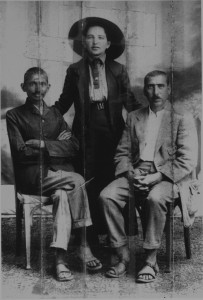Joseph Lelyveld, Pulitzer-Prize winner and author of Great Soul: Mahatma Gandhi and His Struggle With India, found his book officially banned last week in the western Indian state of Gujarat.

The Gujurat state assembly reached a unanimous decision to enact the ban of the book. Additional bans have been suggested throughout India, where until only several years ago homosexuality was illegal. Despite more lenient laws concerning homosexuality since 2009, same-sex relationships still carry social stigma; and although Lelyveld’s book has not yet been released in India, early reviews in the press have prompted strong reactions from Indian leaders.
Great Soul describes the deep relationship between Gandhi and German-Jewish architect and bodybuilder, Hermann Kallenbach. The new book has alleged that Mahatma Gandhi left his wife Kasturba to spend two years with his architect associate to further an alleged homosexual relationship. Gandhian experts have dubbed this as a complete disregard for facts.
In a controversial review of the book that appeared in Wall Street Journal, conservative historian Andrew Roberts lambasts Gandhi for sharing his bed with young, naked women into his ’70s, but then references a section of Great Soul that details a passionate love affair between Gandhi and Kallenbach.
Despite Roberts’ assertions, Lelyveld denied this, arguing that the press had distorted his words.
“I do not allege that Gandhi is racist or bisexual,” he said in a statement. “The word ‘bisexual’ nowhere appears in the book.”
“The word ‘racist’ is used once to characterize comments by Gandhi early in his stay in South Africa … the chapter in no way concludes that he was a racist or offers any suggestion of it.”
However, headlines like that published in the Daily Mail, which reads “Gandhi ‘left his wife to live with a male lover’ new book claims,” have caused an uproar.
Sanjay Dutt, a spokesman the ruling Congress Party in Maharashtra, denounced what he described as the “fashion” to “tarnish the image of great Indian leaders for self-publicity and sale of books,” and argued that “the government should invoke a law to severely punish anyone who tarnishes the image of the father of the nation.”
Ranjit Hoskote, on the other hand, a writer and general secretary of the free expression campaign PEN India, denounced the ban and explained that media conclusions have misconstrued both Lelyveld’s intentions and the nature Gandhi’s interaction with Kallenbach. “You can’t cite a worse example of third hand reportage and comment,” he said. “How can you ban a book you haven’t read?”











